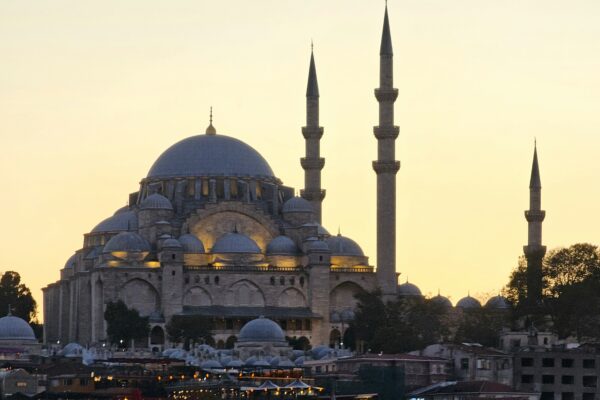When a new community integrates into a society that has otherwise been following a certain status quo, conflict ensues. This happened with Chinese migration, with Mexican migration, with the legal emancipation of African-American slaves and then subsequent attempts at their legal humanization. One of the unique effects of conflict happens when the face and name of an American community is hijacked. When our country fought the Japanese, we sent them to camps in order to keep “watch” on potential spies and insurgents—one of the many dark times in our nation’s history of treating non-WASPs as second-class citizens.
When participating in society, it isn’t reasonable to continue living as if your profile isn’t under scrutiny, as if no one you’ll meet would ever harbor bias or harm in their hearts.
I do not necessarily mean to equate the struggles of our metaphoric ancestors to that of Muslim Americans, nor do I mean to say that the struggles of American Muslims only began with immigration and not with the Atlantic Slave trade. Certainly, American society has learned from the darker parts of its history. Our immigrant children did not necessarily suffer as much as segregation and desegregation-era black children, or as Japanese children in internment camps. The xenophobic rhetoric remains the same, however, and the promise of justice for crimes and assaults committed by the misguided and ignorant against our community seems to be just as empty.
In response to recent tragedies on our side of the world, fueled by heterodox ideologies and movements on the other side of the world, the American Muslim community has found itself in a difficult situation. Just as universal acceptance seems to have become more and more likely, we’ve had to also face a hard reality. We’ve had to remember that our faces and names are still hijacked. Our books are still seen next to rifles. People don’t ask us about our beliefs; they listen to propaganda from both ends of the Khairji message promoting the same kind of view of Islam. Unfortunately, words break bones just as much as sticks and stones.
With reports of Muslim women being pushed onto train tracks and of children being bullied out of school, with a child in Seattle being tossed out of a sixth floor window like rubbish, and the murders of Our Three Winners leaving permanent wounds in our hearts, our safety and security in our own country is compromised.
This situation has split the community into two factions—those who take their religion in pride, not caring about being seen as a target, and those who seek to lie low and avoid confrontation.
Catholic Theology has the concept of 7 cardinal virtues, one of which is Fortitude. Catholicism borrows from the Aristotelian view of virtue being a mean. One should not be extreme in expressing a virtue, but remain in between excess and deficiency. One should not be so extreme in being steadfast in the face of difficulty that they become reckless and foolhardy. Nor should one bend to the situation as to be cowardly. It is the middle ground, using one’s own discretion and prudence, which determines the virtue of one’s character.
Therefore, when participating in society, it isn’t reasonable to continue living as if your profile isn’t under scrutiny, as if no one you’ll meet would ever harbor bias or harm in their hearts. Not everyone studies Islamic history and politics, but everyone does watch the news. The best way to handle adversity may not be to wear your hooded thobe, leather socks, and keffiyeh when going to Kroger or CVS. We aren’t scholars, we don’t have regalia expected of us, but we do have a duty to our loved ones and our community to take prudent steps towards our safety and security.
On the other side, we shouldn’t shame our friends and family that take initiative. It’s one thing not to do something, and another to take a step in becoming less noticeable. Don’t shame the 18 year old girl in your pharmacy class who took off her hijab, or the 20 year old guy in your calculus class for shaving his beard. Don’t shame people for going back to their “white names” they were taught to use in middle school—even though we all know his name isn’t Moe. Don’t call out people for staying silent about the political climate around us. It’s not that they don’t care, they’re just as afraid as we are, and want to be smart about it. We are taught to trust in God, but to tie our camel first.
We’re living in strange times. We see ourselves as American, and we really are welcomed by our society, but we also know all too well that it takes one bad apple to cause serious harm. This isn’t about having faith in God’s protection or about giving into Islamophobic propaganda. It’s about staying safe for the sake of your loved ones and your community. You’re worth too much to all of us. We’ve seen so much and been so afraid, for such a long time. Neither your parents, your siblings, your friends, nor the rest of us in the American Muslim community, can bear the thought of anything happening to you.





